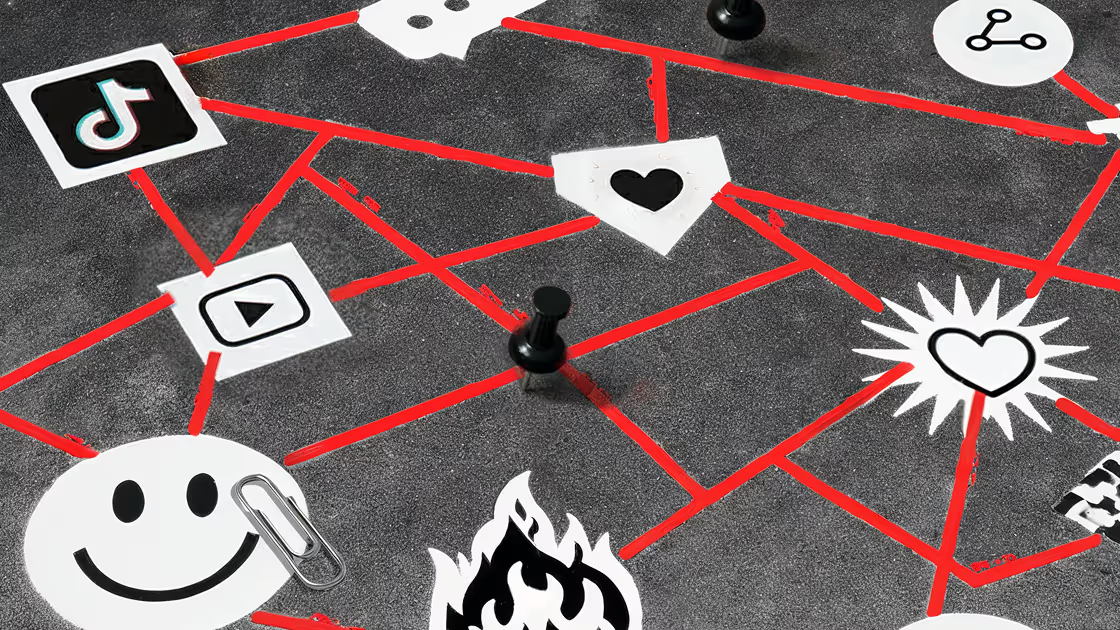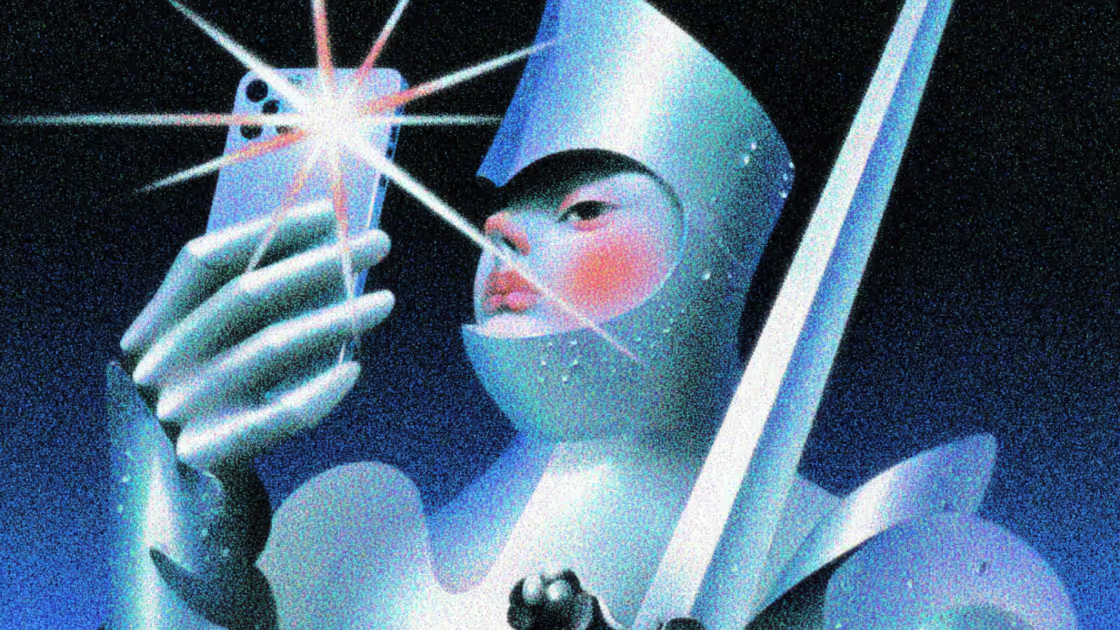
From Mr. Beast to Mr. Least?



Carnival games and philanthropy-for-clicks
Critics argue his philanthropic efforts resemble poverty porn, exploiting vulnerable populations for views.
During his latest project, “Beast Games,” contestants reported unsafe working conditions, claiming they lacked food, medical care, and adequate sleeping arrangements. One participant, Jenae Reidy, described being provided with just a hard-boiled egg and minimal hydration, all while the production company prioritized creating a spectacle over contestant welfare. The cameras rolled, the views spiked, but somewhere in that mess, basic decency took a backseat.

Racism, misogyny, and a dumpster fire of accountability
Mr. Beast has come under fire for production practices but also for the behavior of those within his circle.
In July 2024, allegations surfaced against former collaborator Ava Kris Tyson, accused of having inappropriate conversations with minors and later facing allegations of sexual assault by a former employee. While Tyson denies these accusations, it all still raises serious questions about the culture surrounding Mr. Beast’s brand.
Mr. Beast also found himself at the center of accusations involving inappropriate behavior among his collaborators. Critics pointed to past incidents where the content featured racial stereotypes, questioning the intentions behind Mr. Beast's creative decisions. Claims of misogynistic comments and distasteful conduct prompted discussions about accountability in influencer culture.
A former employee known as DogPack404 alleged that many of the videos produced by Mr. Beast were faked. Add that to the allegations of manipulative behavior, and suddenly, the shiny empire looks a whole lot grimier.
When you build a massive brand like this, every misstep by someone on your team reflects on you, whether you were directly involved or not. What kind of environment is being fostered here?
Kid-proof or kid-bait? The dark side of parasocial exploitation

He’s not hiring kids or running a child-labor factory. But here’s where things get complicated: His brand thrives on drawing in younger viewers.
Mr. Beast's content is perfect bait for kids. Extreme stunts, giveaways, high-energy edits — it's essentially like YouTube's version of crack for an 11-year-old. In fact, 80% of parents say their children aged 5 to 11 regularly watch YouTube content, making it a breeding ground for content designed to keep them hooked.
These kids form parasocial relationships, which basically means they feel like they know Mr. Beast personally. They trust him, follow him, and engage with his brand in ways that blur the line between reality and entertainment. They’re buying into this fantasy that they’re part of his inner circle. Mr. Beast even encourages this with things like "limited edition" merch drops, giveaways, and fan interactions that drive this obsession.
There are zero regulations protecting young viewers from being sucked into these wormholes. Kids are forming these attachments with creators who, at the end of the day, are running businesses. They’re not your buddy — though the lines are so blurry it’s hard for kids to tell the difference.
We've already seen what happens when child exploitation runs unchecked in digital spaces. Family vloggers are often dragged for putting their kids through emotional trauma for views. Remember Jordan Cheyenne, the lifestyle vlogger who got exposed for telling her crying son to "act more upset" for a thumbnail photo after their puppy fell ill? She wasn't the first and won’t be the last to sacrifice real emotions for clicks. It’s not a big leap to worry that, even unintentionally, Mr. Beast’s empire is riding the same wave.
It’s not like Mr. Beast is sitting in a dark room plotting world domination via children’s YouTube views (at least, I hope not). But the consequences of building a brand off the backs of young, impressionable fans are worth scrutinizing.
Accountability or just polishing the PR turd?
Mr. Beast has been pretty open about the pressure cooker he’s living in, constantly trying to one-up himself. But that “go big or go home” mentality can encourage reckless decisions. And the collateral damage? The people working behind the scenes, grinding it out while their well-being gets tossed aside like yesterday’s clickbait.
In response to the scandals, Mr. Beast issued a memo to his team acknowledging the messes — including unsafe conditions and gross behavior on set. He dangled promises like sensitivity training and a whistleblower hotline, and even threw in a new HR chief for good measure. It all sounds great on paper, right? But for most, this smells like the classic “too little, too late.”
Mr. Beast’s saga is the influencer version of “The Wolf of Wall Street” — all glitz until someone points out the trail of destruction. If you’re a creator on the rise, consider this your PSA: Chasing fame is cool and all, but if you don’t keep your ethics in check, the fallout can be dire. Influencers love to glorify success stories like his, but rarely do they stop to reflect on the responsibilities that come with wielding that kind of power.
So, here’s what creators can learn from Mr. Beast’s downfall — to mitigate it later should you be so fortunate.
Lesson #1: Business mode can suffocate creativity
In the early days, Mr. Beast was all hustle and heart — a kid from North Carolina who threw his own cash at people in need and built an empire one stunt at a time. Fast-forward to today, and that same guy isn’t creating anymore — he’s managing a business, and trust me, magic doesn’t scale like that.
Suddenly, the guy who made you click for the chaos was managing an empire instead of creating something real.

Every creator gets into content with a burning desire to make something that resonates, to create something fresh that connects with an audience. As the business grows, the stakes get higher, and suddenly you’re producing content that’s designed to keep advertisers happy, or is optimized purely for clicks rather than authenticity. You’re no longer the underdog pushing boundaries — you’re the king trying to maintain the throne. And just like that, you stop being the rebel shaking things up.
Mr. Beast’s early videos were built around the unknown. The stunts were thrilling because you never knew what would happen. But when business mode took over, everything became formulaic: predictability wrapped in expensive production. As the channel grew, so did expectations, and in the end, Mr. Beast became a brand. And when your content is just a product, it's only a matter of time before people stop caring.

Lesson #2: Growth doesn’t equal selling out, but it’s a fine line
Expansion is tricky. Everyone wants to grow, but the bigger you get, the more eyes are on you, and the pressure to “play it safe” mounts. For Mr. Beast, growth meant aligning with bigger sponsors, hiring a team, and creating partnerships to scale his business. But what happens when growth starts dictating your decisions?
There’s a difference between growing smart and growing at all costs. The moment you prioritize expansion over your audience’s experience is the moment you start losing them. With Mr. Beast, the shift was palpable. What once felt like spontaneous acts of generosity became overly polished and devoid of risk.
For creators still on the grind, you’ve got to ask: Is this move going to make my content better? If the answer’s “nah,” then guess what — you’re stepping into sell-out land. Growth should amplify your voice, not strangle it with sponsors and polished bullshit.
Every time you hit a fork in the road, ask yourself if you’re still creating for your audience or just padding your bank account.
Lesson #3: Your circle will crown or crumble you
Take a hard look at Mr. Beast’s inner circle, and it’s hard to ignore the cracks that emerged. As his empire ballooned, so did his team, swelling with a mix of creators, strategists, and opportunists. But in recent months, those cracks transformed into gaping wounds. Lawsuits from disgruntled former employees, allegations of mistreatment, and controversy swirling around collaborators have cast a long shadow over his once-unassailable reputation. The bigger the empire, the more hands scramble to get a piece of the pie.
As Mr. Beast grew, he entered into partnerships with brands and agencies that were more interested in riding his wave of success than supporting his vision. The allure of lucrative deals can make it easy to overlook the ethical considerations behind them. One wrong move and your brand can lose credibility overnight.Take the Mr. Beast Burger fiasco.
In 2020, Mr. Beast launched his ghost kitchen business, Mr. Beast Burgers, to fanfare and hype. When customers started calling the burgers "inedible," it wasn’t just the food that got cooked — it was his reputation. He sued the company responsible for running the kitchens, claiming they tarnished his brand with poor quality. But whose decision was it to team up?

Lesson #4: Not all attention is good attention
Creators need to grasp a crucial truth: When you’re playing on the big stage, you’re shaping minds, especially those of kids.
The “Mr. Least” era spotlights the ethical responsibility that comes with power. What creators put out into the world gets consumed by everyone, especially the younger generation. When your audience includes children or teens, the weight of your content hits differently. These are the kids who look up to you, who emulate your actions, and who absorb the subtle messages embedded in your videos.
It’s not enough to steer clear of explicit content. Creators need to critically evaluate the impact of their stunts, promotions, and partnerships, knowing the imprint they leave.
Attention should roar from authenticity, impact, and responsibility — not just from cheap thrills or fleeting shock value. Your legacy isn’t carved from views and likes; it’s shaped by the real change you spark in your audience.

Lesson #5: The “Mr. Least” effect: When you prioritize being right over doing right
One of the biggest problems with the Mr. Beast evolution is the shift from doing what’s right to doing what’s profitable or “correct” by business standards. When the focus shifts from making an impact to making a profit, you’ve already started down the wrong path.
We see this in leadership everywhere when being “right” takes precedence over doing the right thing. This happens when leaders (or creators) start making decisions based on what looks good on paper rather than what feels right in practice. They stop listening to their gut and start listening to spreadsheets.
For Mr. Beast, the transformation from creator to businessman came with this shift in focus. He became a diluted version of his former self, more focused on maintaining a business than creating something with heart.

Sell your integrity for limited edition merch
0%
Announce you're adopting orphans for views
0%
Create a “survivor” series for your employees
0%
Give away a million dollars…in Monopoly money
0%
The algorithm’s darling: How Mr. Beast proves YouTube’s system is broken
It’s easy to look at Mr. Beast’s rise on YouTube and think, “Wow, look at this self-made internet king.” His story feels like something anyone would want. But let’s not get lost in the spectacle. Mr. Beast is a product of a broken system — a symbol of the very algorithmic rot that’s destroying creativity and authenticity on the Internet at-large.
Sure, he mastered the platform’s twisted game, catering to an audience addicted to absurdity. His formula is simple: go bigger, louder, wilder. Want views? Give away a house. Want more views? Drop millions into a Squid Game rip-off. He’s figured out that on a platform where watch time and engagement are the currency, the only way to win is to constantly outdo yourself. Every video has to be more extreme, more unbelievable than the last.
And that’s the trap.

Sure, giving away a house or cash may seem like philanthropy, but in this context, it’s transactional — a flashy distraction that keeps people glued to the screen, feeding into YouTube’s endless loop of watch-time obsession. And let’s not forget the darker side: Mr. Beast’s content flourishes on the underlying drama of power imbalances, where wealth disparity becomes entertainment. He’s the benevolent king doling out riches while viewers scramble for a taste of his fortune. It’s content designed to manipulate your emotions — and the algorithm is hot and heavy for it.
Creators generally don’t have millions to throw at outlandish challenges. They’re the artists, the thinkers, the small channels who can’t (or won’t) play the game of extreme, attention-grabbing stunts. They’re casualties in YouTube’s algorithmic war for dominance.
Here’s what we’ve learned:
1. The Algorithm is a kingmaker — and it rewards spectacle over substance
You think Mr. Beast’s success is a fluke? Please. He’s hacked the algorithm’s psyche, and it’s all about the tricks that keep viewers glued to their screens.
YouTube doesn’t give a damn about your artistic integrity or the profound messages you think you’re sharing.

2. Philanthropy, but make it content
There’s no doubt Mr. Beast is charitable — he has given away millions of dollars in cash, cars, houses, and more. But every act of kindness is part of a larger machine designed to capture attention and engagement. The spectacle of his generosity is inseparable from the content itself.
Giving away a house? It’s like tossing a bone to a pack of ravenous fans. The bigger the stunt, the more eyeballs he attracts. It’s all about how many tears you can wring out of your audience when the winner realizes they’re won’t be living in their car anymore.
The line between genuine philanthropy and attention-seeking spectacle is getting blurrier. What happens when your good deeds morph into content fodder, done solely for clicks and algorithm love? When every act of kindness becomes another episode in your content series, it raises some serious questions about morality.
Remember, a viral act of kindness doesn’t make you a saint — it makes you a savvy marketer with a heart of... well, whatever gets the clicks.
3. Escalation is the name of the game
Mr. Beast has set a dangerous precedent. Every video he releases has to be bigger than the last. Mr. Beast didn’t create this hunger for more, but he’s mastered feeding it.
Want to donate a car? Yawn. Try giving away a fleet of cars while blindfolded on a moving roller coaster! The audience? They’re salivating for the next wild spectacle that’ll blow their minds. The algorithm has an insatiable appetite for chaos and drama.
So, unless you’ve got a million bucks lying around and a knack for ludicrous stunts, you might want to consider another career — like interpretive dance or competitive cheese rolling. If you can’t outdo the last jaw-dropping stunt, your channel might as well be a museum exhibit titled "What Once Was."
4. The creators who don’t play the game are on the struggle bus
While Mr. Beast’s success is lauded, what about the creators who don’t — or can’t — play this game? The platform’s obsession with sensationalism is suffocating artists, small creators, and storytellers who can’t afford to compete on this level.
It’s a ruthless arena that punishes those who dare to be real, rewarding the big spenders and the shock value junkies instead. YouTube’s algorithm is like that one friend who only shows up to parties with the loudest outfits and the wildest stories, leaving the quiet geniuses feeling like wallflowers at a rave.

5. The human cost of chasing attention
What’s the cost of this constant chase for views? For Mr. Beast, it’s the pressure to keep raising the stakes, to stay relevant, and to keep outdoing himself. But for the audience, there’s a deeper concern — we’re becoming numb. The bigger the stunts, the less we’re impressed. The more we’re entertained by giving away millions, the more desensitized we become to real human struggles.
It’s easy to watch these videos and think they’re harmless fun, but it shapes the expectations of future creators and viewers. While we’re busy laughing at people winning houses like it's a game of Monopoly, we forget that real-life struggles don’t come with a camera crew or a cash prize.
The platform is like a greedy carnival barker, yelling for more and more, while the audience laps it up. At what point (if ever) do we collectively shout, “Enough is enough!”?
Stay true or get trapped: Ditch the Mr. Least mentality
Mr. Beast’s tumble from grace isn’t a sob story about fame. It’s a wake-up call for anyone brave enough to wield a camera or put their thoughts into the universe. For all you creators hustling in the trenches, take a hard look in the mirror. Are you the fearless architect of your vision, or have you been seduced into the sterile grind of viral conformity, spitting out soulless content like a factory machine? And more importantly, are you ready to be honest with yourself with that answer?
Protect your creative spark like it’s the last shot of espresso before a long night, because once it fades, you’re left with stale trends and fake followers. If you’re not fueling your content with genuine passion, you’re just playing dress-up in a masquerade — and trust me, nobody wants to watch that sad show.

Read on:


All
Artificial Exploitation


All
She Sold her Bathwater, but You Drank it


All
CRIMINAL INVESTIGATION REPORT: THE GLEEFUL DEATH OF TRADITIONAL MARKETING


All
Hot Takes, Typos, and Total Chaos: The Secret Tactics Driving Online Engagement


All
THE DEATH MARCH OF HYPERCOLOR BALLOON SWORDS


All
“They’re Watching Me”: Gang Stalking, Internet Delusions, & the Modern Mindf*ck


All
The Unripest Avocado: Nicholas Perry and the Dangers of Audience Capture


All
Branded Since Birth


All
How to not be a shitty affiliate seller, a talk with So_Narly


All
Parasocial Profit: The Unethical Underbelly of Affiliate Marketing


All
Stitch Incoming: Annie Stafford, Niche, and the Future of Fashion


All
Step right up!


All
Cooking Up a Social Media Empire


All
Right & Wrong Reasons to Expand


All
Have Influencers Peaked?


All
What’s Your Creator Fortune?


All
Mercy Kill Your Online Persona


All
Still Posting Post-Death


All
Cardboard Pizza: The Deadly Art of Losing Your Social Media Credibility


All
From Mr. Beast to Mr. Least?


All
Robots & Red Lace


All
Parental Discretion (Still) Advised


All
It’s 2024 and — Wait, Email Doesn’t Suck?


All
What’s a like on Instagram ‘worth’ in 2024?


All
A crash course in "crash course"


All
Speed sells: Why it’s important to respond lickety-split
© 2026 Manychat, Inc.






.avif)

















